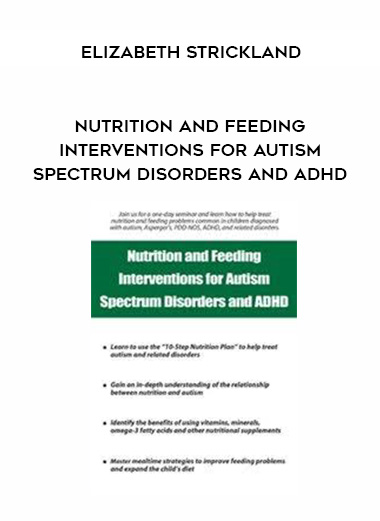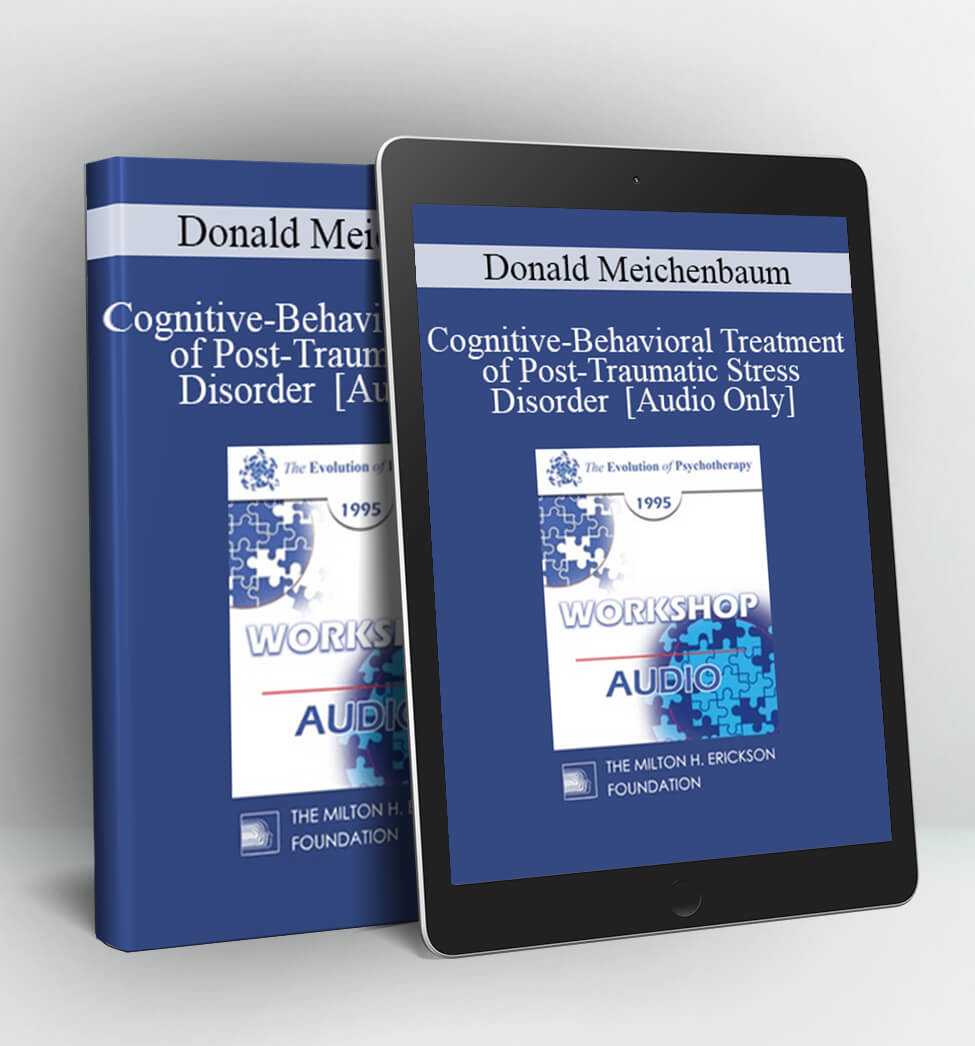NUTRITION AND FEEDING INTERVENTIONS FOR AUTISM SPECTRUM DISORDERS AND ADHD – ELIZABETH STRICKLAND
One in every 88 children is diagnosed with Autism Spectrum Disorder!
This epidemic prevalence makes autism one of the most common developmental disabilities in the United States. Children with autism are at risk for many nutrition problems, such as nutritional deficiencies, drug/nutrient interactions, food allergies, food intolerances, chemical sensitivities, gastrointestinal disorders, and feeding problems.
Parents are increasingly utilizing diet and nutritional supplements, which they learn about from support groups, the press, the Internet, and other non-medical sources, but they need guidance from professionals to help them through the maze of emerging nutrition information. Unfortunately, most professionals do not feel prepared to assist parents in this area of treatment. Dietitians, educators, therapists, and other health care professionals seek reliable information so they can assist parents in making informed decisions regarding appropriate nutrition and feeding interventions.
This one-day seminar is designed to provide the most authoritative, current, scientific-based information on nutrition and feeding interventions for the treatment of Autism Spectrum Disorders, ADHD, PDD-NOS, and other related disorders. Participants will leave the seminar with the knowledge, strategies, and resources to help families make informed decisions regarding diet, nutritional supplements, and feeding problems. All professionals and parents wanting a better understanding of the role of nutrition therapy in the treatment of autism and related disorders will benefit from attending this seminar.
- Summarize how certain foods, food additives and nutrient deficiencies impact a child’s learning, behavior, mood and brain function
- Explore how improvements in a child’s nutritional status will enhance his/her response to occupational, speech, physical, behavioral and educational therapies.
- Provide basic mealtime strategies and feeding interventions to help improve a child’s feeding problem and expand his/her diet.
- Communicate the nutritional, medical, oral-motor, sensory, environmental and behavioral factors contributing to feeding problems.
- Implement nutritional interventions to help heal gastrointestinal symptoms, enhance cognitive function and rid toxins naturally from the child’s body.
- Distinguish between a “Picky Eater” and a “Problem Feeder” as it relates to choice of treatment intervention.
AUTISM SPECTRUM DISORDER—OVERVIEW
- Define autism, symptoms, and characteristics
- Prevalence and causation theories
- Connection between nutrition and autism
NUTRITION THERAPY
- Nutrients critical for brain function
- Components of a Nutrition Therapy assessment
- Laboratory test to assess nutritional status
- Role of the SLP, OT, PT, educators, and others in nutrition interventions
NUTRITION INTERVENTIONS
- Components of a healthy diet
- Elimination of sugar and artificial colors to improve behavior and brain function
- Omega-3 fatty acids to improve dyspraxia, dyslexia, anxiety, and ADHD
- How to select a vitamin and mineral supplement
- Five approaches to get a child to take a supplement
- Identify and treat food allergies, sensitivities, and intolerances
- GFCF, SCD, GAPS, Rotation, Antifungal, Feingold, and Low Oxalate Diets
- Vitamin B6, Vitamin B12, and Folate to treat biomedical abnormalities
- Role of carnitine to help treat attention deficit symptoms
- Nutrients to enhance the detoxification system
FEEDING PROBLEMS
- Distinguish a “Picky Eater” from a “Problem Feeder”
- Underlying factors that contribute to a feeding problem
- Mealtime strategies to increase acceptance of new foods
- Build a multi-disciplinary feeding team
- Overview of the Sequential Oral Sensory Approach to Feeding
GASTROINTESTINAL DISORDERS
- How GI symptoms contribute to behavior and feeding problems
- Carbohydrate digestion abnormalities in children with autism
- Laboratory and diagnostic test to identify GI disorders
- Diet and nutritional interventions to treat gut problems
IFSP AND IEP
- Nutrition services as a component of the ECI program
- Nutrition goals and objectives for the child’s IEP
Tag: Nutrition and Feeding Interventions for Autism Spectrum Disorders and ADHD – Elizabeth Strickland Review. Nutrition and Feeding Interventions for Autism Spectrum Disorders and ADHD – Elizabeth Strickland download. Nutrition and Feeding Interventions for Autism Spectrum Disorders and ADHD – Elizabeth Strickland discount.




